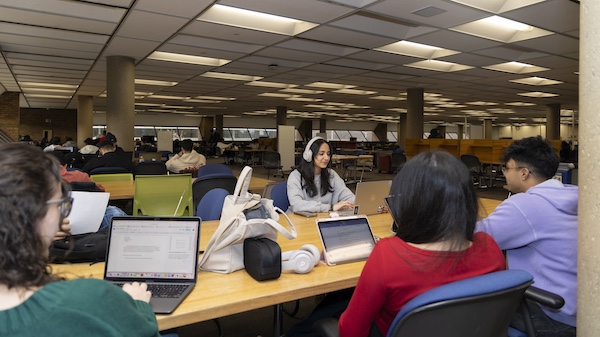Related Resources
Combine Theory With Practical Applications
 Our mathematics bachelor’s degree program at the University of Michigan-Dearborn provides a strong foundation in both theoretical and applied mathematics, preparing you for a wide range of opportunities in our data-driven world. You have many options to personalize the program with courses that fulfill your personal interests and professional goals.
Our mathematics bachelor’s degree program at the University of Michigan-Dearborn provides a strong foundation in both theoretical and applied mathematics, preparing you for a wide range of opportunities in our data-driven world. You have many options to personalize the program with courses that fulfill your personal interests and professional goals.
Where a Mathematics Degree Will Take You
The analytical and problem-solving skills you learn in our mathematics program will prepare you for a wide range of careers. Our graduates have found exciting opportunities in academia, research, data analysis, IT, finance, and government, among other areas. A bachelor’s degree in mathematics also provides great preparation for pursuing graduate studies.

